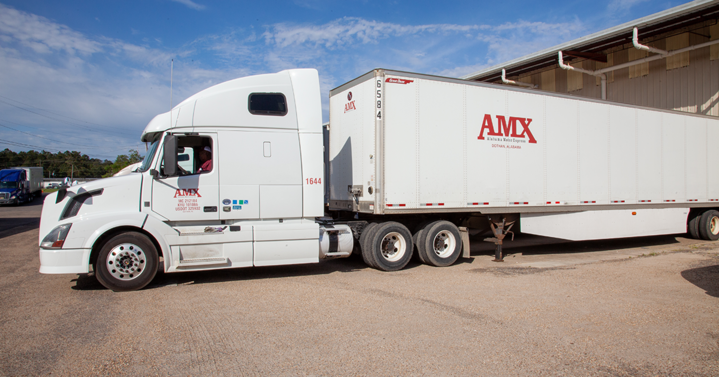As leading supply chain news sources report doomsday predictions, shipping companies are left grasping for the next best action to take. The latest COVID variant, the wrecking ball of e-commerce on the capacity shortage, and mixed reviews of presidential motions have provided shippers with plenty to fear. Contrary to these articles, the U.S. Energy Information Administration’s weekly tracking of on-highway diesel prices shows slight decreases in most regions. Although reduced pressure may provide a hint of stabilization, it’s crucial that shippers collectively see all signs as indicators to make strategic moves to ensure their stability in the future. For many companies, the first step toward stability is the proper usage of dry van trucking companies in daily operations.
What Is a Dry Van’s Role in Shipping?
A dry van is a large boxed trailer attached to a semi-truck. Unlike a reefer truck, dry vans are not climate-controlled and thus only utilized for non-perishable goods. Although limited in one sense, this type of truck provides tremendous flexibility to move palletized, boxed, or loose freight. A dry van trailer also becomes the transportation solution for small, lightweight items and other products that are difficult or impossible tie down on a flatbed.
Who Do Dry Van Trucking Companies Haul For?
Different shipping companies have varied answers when asked, “What is a dry van truck’s role in your operations?” A grocer might utilize expedited services for their produce, a reefer for their frozen and dairy products, and a dry van for their boxed non-perishables. An automotive mechanic may have items that can travel in a dry van and others that require transport via flatbed. Other industries that utilize dry van trucking include health and beauty, non-perishable beverages, construction, furniture, household manufacturers, and clothing retail.
What Is a Dry Van Truck’s Size?
The specs of a dry van may differentiate between a local carrier and a national provider and from company to company. However, the two main sizes settle at 28 or 53 feet long. The more extended trailer may be as short as 48 but seldom extends past the 53. The respective trailers have weight limitations of 22,500 pounds and 45,000 pounds. However, it’s wise for shippers to consider packing a tad less than the weight capacity for safe handling.
What Are the Advantages and Disadvantages of Dry Van Trucking?
When considering what is a dry van truck and its advantages over other transport methods, the first thing that comes to mind most often is the cost. Because the commodities going within dry vans do not require specialized care or equipment, the overall cost for the transportation goes down, potentially even including the hourly driver pay. Because dry vans are one of the most common forms of freight transportation on the road, it can be easier to find a capacity within the required timeline instead of specialized trucks.
So what are a dry van truck’s disadvantages? Although the boxed form leaves a lot of flexibility for how freight can fit within, it’s still important to note that ship pers cannot modify the trailer to fit oversized objects because it is a complete container. In addition, the lack of climate control can still affect the products carried within by producing mold due to locked-in moisture buildup.
Partner with AMX Logistics To Find The Best Dry Van Carriers
The benefits of dry van trucking are clear, but it all comes down to the quality carriers that operate and manage them. With shippers still burned by the drastic trucking slowdown of 2020, many companies wonder if finding dedicated freight shipping solutions is even possible today. AMX Logistics’s hybrid brokerage can walk you through what is a dry van truck’s regional availability and even meet your carrier needs by contracting carriers and providing their own. Contact AMX Logistics today to find dry van trucking solutions for your operations.


